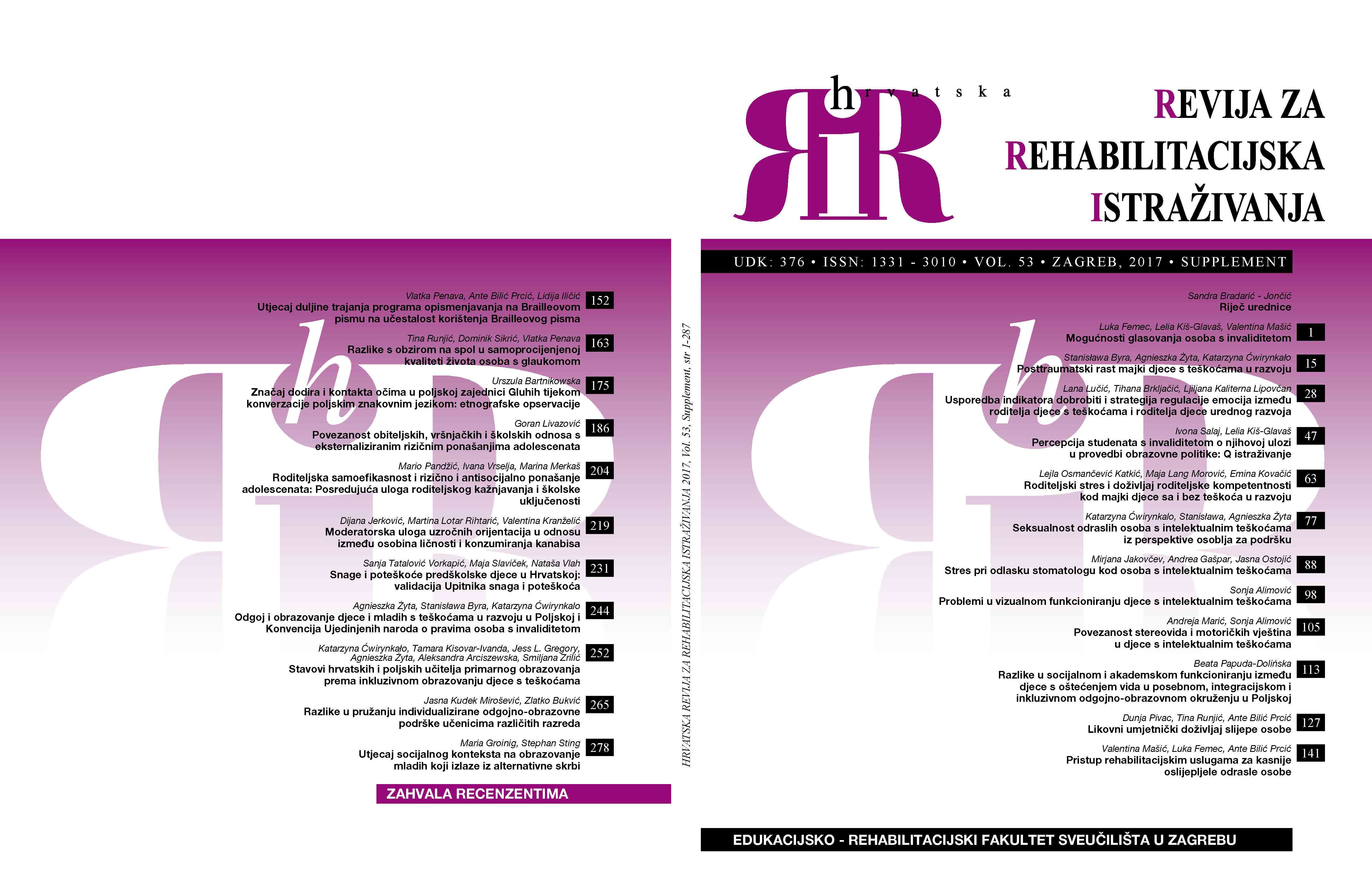Snage i poteškoće predškolske djece u Hrvatskoj: validacija i upitnika snaga i poteškoća
Strengths and difficulties in Croatian preschool children: validation of the Strengths and Difficulties Questionnaire
Author(s): Sanja Tatalović Vorkapić, Maja Slaviček, Nataša VlahSubject(s): Social Sciences, Psychology, Health and medicine and law
Published by: Sveučilište u Zagrebu, Edukacijsko-rehabilitacijski fakultet
Keywords: preschool children; reliability; Strengths and Difficulties Questionnaire; validity; mental health;
Summary/Abstract: Results on the Strengths and Difficulties Questionnaire (SDQ) represent psychological adjustment, well-being, and mental health of children and youth. The SDQ contains 25 items, 10 of which reflect strengths, and 15 of which reflect difficulties, in children’s behaviour. Based on its content, five different subscales can be generated: emotional symptoms, conduct problems, hyperactivity, peer problems, and prosocial behaviour. The aim of this study was to test the factor structure and reliability of this instrument. Twenty-nine preschool teachers in this study assessed the strengths and difficulties of 416 preschool children of both genders (241 boys and 220 girls), aged between 1.5 and 7.5 years (M = 5.00, SD = 1.17). After obtaining informed consent from preschool teachers, parents, and managers of randomly chosen kindergartens in Primorsko-goranska County in Croatia, preschool teachers rated the children’s behaviour on the SDQ. A confirmatory factor analysis using principal component analysis and Oblimin rotation was conducted. The results confirmed the expected five-factor structure of SDQ, which explained 57.35% of total variance. The reliability of the questionnaire for all subscales proved to be moderate to high: emotional symptoms (α = .73), conduct problems (α = .78), hyperactivity (α = .84), peer problems (α = .78), and prosocial behaviour (α = .63). Results show that the SDQ has satisfactory psychometric properties in a population of Croatian preschool children and can be used for measuring well-being and mental health dimensions in these children.
Journal: Hrvatska revija za rehabilitacijska istraživanja
- Issue Year: 53/2017
- Issue No: Supp.
- Page Range: 231-243
- Page Count: 13
- Language: English

